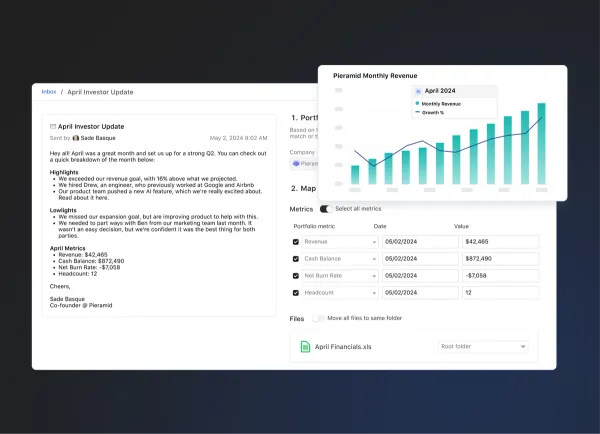

Cannabis Legal Landscape in 2024
Staying informed about legal developments is crucial for cannabis founders as they navigate the complex and rapidly changing landscape. Understanding the legal environment will help them make strategic decisions, ensure compliance, and capitalize on new opportunities as they arise.
Current State of Cannabis Legalization in the U.S.
As of 2024, the legal landscape for cannabis in the United States continues to evolve rapidly. Over 20 states have fully legalized cannabis for both medicinal and recreational use, reflecting a growing acceptance and normalization of cannabis across the country. Notably, states such as New York, Virginia, and Connecticut have recently implemented adult-use cannabis programs, adding to the momentum.
- Federal Status: Cannabis remains illegal at the federal level, classified as a Schedule I substance under the Controlled Substances Act. However, there have been significant legislative efforts to change this. The MORE Act (Marijuana Opportunity Reinvestment and Expungement Act) and the SAFE Banking Act (Secure and Fair Enforcement Banking Act) have gained traction in Congress, aiming to decriminalize cannabis and provide a safer, more accessible financial environment for cannabis businesses.
- State-by-State Variation: Despite federal prohibition, individual states have continued to pass their own cannabis laws. This patchwork of regulations creates a complex legal environment for cannabis businesses operating across state lines. Entrepreneurs must navigate varying requirements for licensing, taxation, and compliance.
Global Cannabis Legalization
Internationally, the movement toward cannabis legalization is gaining significant ground. Several countries have either decriminalized cannabis or established legal frameworks for its medicinal and recreational use.
- Canada: As one of the first countries to legalize recreational cannabis nationwide in 2018, Canada continues to lead in both market development and regulatory structure.
- Europe: European countries like Germany and Luxembourg are in the process of implementing comprehensive cannabis legalization measures. Germany, in particular, is poised to become the largest legal cannabis market in Europe.
- Latin America: Countries such as Mexico and Colombia have made strides in legalizing and regulating cannabis, with Mexico expected to finalize its legalization framework soon.
- Asia: While most Asian countries maintain strict cannabis laws, Thailand has emerged as a regional pioneer by legalizing medical cannabis and considering broader reforms.
Significant Changes and Expected Upcoming Legislation
- U.S. Federal Reform: The potential for federal cannabis reform in the U.S. remains a key area of focus. The passage of bills like the MORE Act and SAFE Banking Act could significantly alter the landscape, offering greater protections and opportunities for cannabis businesses.
- Interstate Commerce: As more states legalize cannabis, the conversation around interstate commerce is heating up. Allowing cannabis products to move freely between states could open up new markets and reduce costs, but it would require significant regulatory adjustments.
- Social Equity Programs: There is a growing emphasis on social equity in cannabis legislation. Many states are implementing or enhancing programs designed to ensure that communities disproportionately affected by the War on Drugs have access to opportunities in the legal cannabis market.
- Global Harmonization: On the global stage, there is an increasing push towards harmonizing cannabis regulations to facilitate international trade and research. This could lead to more consistent standards and practices across countries, benefiting businesses that operate internationally.
Cannabis Market Growth and Projections
The cannabis industry continues to experience rapid growth, driven by increasing legalization, evolving consumer preferences, and technological advancements. As of 2024, the global cannabis market is projected to reach significant milestones, with substantial growth expected in the coming years.
Related Resources: 8 Cannabis Startups With High Growth Potential
Market Size and Growth Projections
- Global Market: The global cannabis market was valued at approximately $43.72 billion in 2022 and is expected to grow to $57.18 billion in 2023. By 2030, the market is projected to reach $444.34 billion, reflecting a compound annual growth rate (CAGR) of 34.03%.
- U.S. Market: In the United States, the cannabis market is anticipated to grow from $13.2 billion in 2022 to around $40.1 billion by 2030, with a CAGR of 14.2%. Retail cannabis sales in the U.S. could reach $53.5 billion by 2027.
Key Trends Shaping the Industry
- Technological Advancements: Integrating blockchain and artificial intelligence (AI) is expected to revolutionize supply chain management and compliance tracking in the cannabis industry. Additionally, personalized cannabis products are gaining traction as consumers seek tailored experiences and products that meet their specific needs.
- Product Innovation: The trend toward innovative and diverse cannabis products continues to grow. Products such as pre-rolls, edibles, oils, and topicals are becoming increasingly popular. The market for CBD-infused products, including beverages and skincare items, is also expanding rapidly.
- Price Compression: Competitive pricing among cannabis brands and retailers has led to significant price declines since 2021. This trend has forced brands to consolidate and adapt to maintain profitability in a highly competitive market.
- Consumer Demographics: Millennials are currently the largest demographic of cannabis consumers in the U.S., capturing nearly 46.2% of all cannabis sales. However, Gen Z is the fastest-growing group, indicating a shift in consumer dynamics and preferences.
- Medical and Recreational Use: The medical marijuana segment continues to dominate the market, accounting for a significant share of revenue due to its acceptance for treating chronic conditions such as cancer, epilepsy, and anxiety. The recreational cannabis segment is also growing rapidly, driven by increased legalization and consumer acceptance.
Future Outlook
The cannabis industry is poised for continued growth and evolution in the coming years. Key factors influencing this growth include:
- Legalization Trends: More U.S. states and countries worldwide are expected to legalize cannabis for both medical and recreational use, contributing to market expansion and increased consumer access.
- Social Equity Initiatives: There is a growing emphasis on social equity programs designed to support marginalized communities and promote diversity within the cannabis industry.
- Sustainability: Environmental sustainability is becoming a critical focus, with many cannabis companies adopting eco-friendly practices to meet consumer demand and regulatory requirements.
Emerging Investment Trends in Cannabis
As the cannabis industry continues to expand, several emerging investment trends are shaping its future. Investors are increasingly focusing on technological advancements that enhance efficiency and transparency, innovative health and wellness products that cater to growing consumer demand, and sustainable practices that ensure environmental responsibility.
Tech Integration
Technology is increasingly vital in the cannabis industry, driving advancements across various segments, including cultivation, processing, distribution, and retail.
- Cultivation: Advanced technologies such as precision agriculture, including sensors and drones, are optimizing cannabis cultivation. These technologies help monitor soil health, moisture levels, and plant growth, allowing for better crop management and higher yields.
- Processing: Innovations in extraction techniques, such as supercritical CO2 extraction, are enhancing the efficiency and quality of cannabinoid extraction processes. This results in purer products and reduces the use of harmful solvents.
- Distribution: Blockchain technology is being implemented to enhance transparency and traceability in the supply chain. Tracking each stage, from seed to sale, ensures product authenticity and safety.
- Retail: AI and machine learning are transforming the retail landscape by enabling personalized customer experiences. Predictive analytics help retailers stock the right products and offer personalized recommendations, enhancing customer satisfaction.
Health and Wellness
The health and wellness sector is witnessing a significant rise in the use of cannabis products, driven by growing consumer awareness and acceptance of their medicinal benefits.
- CBD Products: CBD, known for its non-psychoactive properties, is increasingly being used to treat conditions such as anxiety, epilepsy, and chronic pain. The FDA-approved drug Epidiolex, which contains CBD, is used to treat seizures associated with Lennox-Gastaut Syndrome.
- THC and Other Cannabinoids: THC, although psychoactive, is recognized for its therapeutic benefits, including pain relief and appetite stimulation. The development of THC-based products, such as Sativex, is aimed at treating multiple sclerosis and other conditions.
- Wellness Products: The integration of cannabis into wellness products such as topicals, tinctures, and edibles is growing. These products are marketed for their potential to provide relief from muscle soreness, inflammation, and stress, contributing to overall wellness.
Sustainability
Sustainability is becoming a critical focus in the cannabis industry as companies and consumers prioritize environmentally friendly practices.
- Eco-Friendly Cultivation: Sustainable cultivation practices include organic growing methods, water recycling systems, and energy-efficient lighting. These practices reduce the environmental impact of cannabis farming.
- Packaging Innovations: There is a growing trend towards sustainable packaging solutions to reduce waste. Companies are adopting biodegradable and recyclable packaging materials to minimize their carbon footprint.
- Corporate Responsibility: Many cannabis companies are implementing corporate social responsibility (CSR) initiatives focusing on sustainability. These initiatives include reducing greenhouse gas emissions, supporting local communities, and promoting social equity in the industry.
Venture Capital Firms Making Cannabis Investments
When fundraising, it is crucial that founders spend time communicating with and pitching the right investors. To help founders get a start with finding cannabis investors, we used our free investor database, Visible Connect, to find 12+ investors below:
KEY Investment Partners
KEY is a Denver-based capital venture firm positioned in the most established market of US cannabis. In addition to their +38 years of investing experience, KEY Investment Partners also produces a cannabis-focused blog (found HERE), which gives insight into current events impacting the legal cannabis industry.
To learn more about KEY Investment Partners check out their Visible Connect profile HERE.
Base Ventures
Base Ventures is a Berkeley, CA-based venture fund led by Erik Moore. Base Ventures is a seed-stage fund that invests across all verticals of tech companies — with a % of those being in cannabis companies. Erik and his team have made over 100 venture investments with the most recent cannabis investment being in late 2019.
To learn more about Base Ventures check out their Visible Connect profile HERE.
Entourage Effect Capital
Entourage Effect is one of the largest players in the cannabis industry. They have allocated over $200M into 65+ companies since 2014. Their three managing partners, Matt Hawkins, Andy Sturner, and Dov Szapiro, have a combined 65+ years of venture experience and are not planning on slowing down anytime soon.
To learn more about Entourage Effect Capital check out their Visible Connect profile HERE.
HALLEY Venture Partners
HALLEY Venture Partners has been focused on the cannabis sector for the past five years. The San Francisco-based firm is led by Steve Schuman, who has over 17 years of private and public equity experience, ranging across agriculture, technology, and manufacturing. HALLEY is heavily geared toward the technology sector of cannabis and is looking to build highly-scalable businesses.
To learn more about Base Ventures check out their Visible Connect profile HERE.
Related Resource: 14 Venture Capital Firms in Silicon Valley Driving Startup Growth
Green Lion Partners
Green Lion Partners looks to invest in early-stage ventures throughout the entire cannabis industry. The Denver-based business, founded by Jeffrey Zucker and Michael Bologna, looks to “elevate public perception of the cannabis industry.”
To learn more about Green Lion Partners check out their Visible Connect profile HERE.
Salveo Capital
Salveo Capital is focused on creating long term cannabis companies and focuses on empowering the entrepreneurs in charge. Michael Gruber (managing partner) has been involved in the early stage investing environment for 25 years, focusing on tech, finance, and agriculture. Jeffrey Howard (managing partner) has spent 21 years on Wall Street and has become both an advisor and investor of cannabis-based firms.
To learn more about Salveo Capital check out their Visible Connect profile HERE.
Phyto Psyche
Phyto Partners invests in a plethora of different cannabis-based businesses, including SaaS, Data, Biotech, Advertising, and more. The investing firm is led by Larry Schnurmacher, who has invested in 25 private, cannabis businesses over the past five years. Phyto invests more than just capital into the 30+ businesses they have lent help to.
To learn more about Phyto Partners check out their Visible Connect profile HERE.
McGovern Capital
McGovern Capital LLC, based in New York City and Boca Raton, Florida, is a leading private investment firm and Intellectual Property Rights Strategist that originates, funds, structures and implements capital formation, joint ventures and business alliances. Mcgovem Capital LLC invests early-stage capital and provides facilitative services to its
investment companies. They provide access to a network of Angel investors comprised of high net-worth individuals, approximately 50% of which are located in the metropolitan New York area, with the rest ranging from the West Coast of the US to several overseas countries.
To learn more about McGovern Capital check out their Visible Connect profile HERE.
Altitude Investment Management
About: Altitude is a New York-based venture capital fund manager focused on the global cannabis industry. The manager's strategy is to invest in a range of early-to-growth stage companies in North America and Europe that support this rapidly growing industry.
Our principals have spent their careers launching and managing alternative investment funds, including distressed debt and leveraged credit strategies. We have been involved in highly-regulated industries for decades, and this experience makes our leadership team uniquely qualified to face the regulatory and funding challenges within the cannabis industry.
Having invested in the cannabis industry for more than three years, Altitude has deep relationships with legal and regulatory professionals, CEOs of cannabis companies, industry organizations, and consultants.
To learn more about Altitude Investment Management, check out their Visible Connect profile HERE.
Tuatara
Tuatara is a sector-focused private equity firm dedicated to helping great companies realize their vision in the burgeoning cannabis industry.
To learn more about Tuatara, check out their Visible Connect profile HERE.
Arcview Capital
The Arcview Group is a vertically integrated company servicing the cannabis and hemp industry, built with social justice and responsibility at its core. Arcview has been a trusted global leader for over ten years and nexus for investors, companies, entrepreneurs, and community, providing a broad spectrum of programs and services.
To learn more about Arcview Capital, check out their Visible Connect profile HERE.
Casa Verde Capital
Casa Verde was one of the first funds established to focus on the cannabis industry. We believe this industry represents one of the most compelling investment opportunities of our generation. Since 2015, we’ve evaluated thousands of opportunities and invested in a select few. Our goal is to leverage our robust relationships to assist portfolio companies in solving complex issues facing this nascent market. Casa Verde can participate in all stages of the financing cycle, with a focus on investing in scalable, capital-efficient businesses, led by world-class entrepreneurs. Given the natural overlap across the value chain, our portfolio companies frequently work together to help solve operational issues and also create significant value for the businesses involved.
To learn more about Casa Verde Capital, check out their Visible Connect profile HERE.
Poseidon
Poseidon is one of the oldest and most active private equity firms in the cannabis space. They invest in both private and public cannabis companies across various sectors, including technology, cultivation, and ancillary services.
To learn more about Poseidon, check out their Visible Connect profile HERE.
Other Funding Strategies and Resources
Securing funding is a critical step for cannabis startups aiming to scale their operations and succeed in a competitive market. In addition to traditional venture capital, there are various alternative funding options, grant opportunities, and support programs that can provide valuable resources to cannabis entrepreneurs.
Alternative Funding Options
- Crowdfunding: Crowdfunding platforms have become popular for cannabis startups to raise capital from many small investors. Sites like SeedInvest and StartEngine allow cannabis businesses to reach a broad audience and secure funding without relying solely on venture capitalists. These platforms allow startups to validate their business ideas and build a community of supporters.
- Private Equity: Private equity firms are increasingly interested in the cannabis sector, recognizing the long-term growth potential. These firms provide substantial capital investments in exchange for equity stakes, often taking an active role in the company's strategic direction. Private equity can benefit established cannabis businesses looking to expand rapidly.
- Strategic Partnerships: Forming strategic partnerships with established companies in related industries can provide funding and valuable resources. These partnerships can include joint ventures, co-branding opportunities, and supply chain collaborations. Such alliances can help cannabis startups leverage their partners' expertise and networks to accelerate growth.
Grant Opportunities
While federal grants for cannabis businesses are limited due to its classification as a Schedule I substance, several states and private organizations offer grants to support cannabis research and business development.
- State Grants: Some states with legalized cannabis markets, like California and Colorado, offer grants to support cannabis research, social equity programs, and business development initiatives. For example, the California Cannabis Equity Grants Program provides funding to help individuals from communities disproportionately affected by the War on Drugs to enter the cannabis industry.
Examples:
- California Cannabis Equity Grants Program
- Overview: Administered by the Department of Cannabis Control and the Governor's Office of Business and Economic Development (GO-Biz), this program provides funding to support local jurisdictions in promoting social equity in the cannabis industry.
- Eligibility: Designed to assist individuals from communities disproportionately affected by the War on Drugs.
- Details: Grants can be used for technical assistance, loans, grants, and regulatory compliance support.
- Colorado Cannabis Business Grant
- Overview: This program provides grants to support innovative cannabis business models, focusing on social equity applicants.
- Eligibility: Social equity licensees in Colorado, particularly those who demonstrate a commitment to creating jobs and supporting community development.
- Details: Grants can be used for business development, regulatory compliance, and operational support.
- Massachusetts Social Equity Program
- Overview: The Massachusetts Cannabis Control Commission offers grants to help entrepreneurs from communities disproportionately impacted by previous marijuana prohibition.
- Eligibility: Applicants must meet specific social equity criteria outlined by the state.
- Details: Funding is available for business training, technical assistance, and startup capital.
- Private Grants: Organizations like the Minority Cannabis Business Association (MCBA) and private foundations also offer grants to support diversity and inclusion within the cannabis industry. These grants aim to reduce barriers to entry and provide resources to underrepresented groups.
Example:
- Minority Cannabis Business Association (MCBA) Grants
- Overview: MCBA provides grants to minority-owned cannabis businesses to promote diversity and inclusion within the industry.
- Eligibility: Minority-owned cannabis businesses with a focus on social equity.
- Details: Grants can be used for business development, marketing, and operational expenses.
What Do Cannabis Investors Want to See in a Potential Investment?
Finding the right investors to pitch to is a small part, yet crucial, part of a fundraise. Before building a list of potential investors, founders need to understand what potential investors are looking for in an investment. Check out a few of the most common attributes cannabis VCs look for below:
ROI Potential
A VC fund’s job is to generate returns for its investors (LPs). In order to do this, they need to build a portfolio that has the ability to generate outsized returns. This means that VCs are looking for portfolio companies that have huge ROI potential and can return the fund to their investors.
Related Resource: A Quick Overview on VC Fund Structure
Scalability
Going hand in hand with ROI potential is the potential for scalability. By having a clear vision for scalability and growth, startups can stand out in the eyes of investors. The potential for growth is a signal to investors that they have the ability to generate huge returns.
High Barriers to Entry
Another aspect potential investors look for in a potential investment are barriers to entry. In competitive spaces, like the cannabis industry, investors want to see portfolio companies that have built high barriers to compete and take their market share.
Branding and Vision
Investors will also want to see strong branding and vision from a cannabis startup. This is relevant for any startup but especially important for consumer-facing cannabis startups.
Related Resources: Private Equity vs Venture Capital: Critical Differences
Find Cannabis Venture Capital Investors with Visible
As we mentioned above, finding the right investors to pitch to for a fundraise is crucial to success. Founders need to make sure they are spending their time on the right investors. In order to best help founders filter and find the right investors for their business we built Visible Connect, our free investor database. Give Visible Connect a try here.
View here a filtered list of cannabis-based VCs or check out over 18,000 other global VCs at Visible Connect.
Related Resources:




